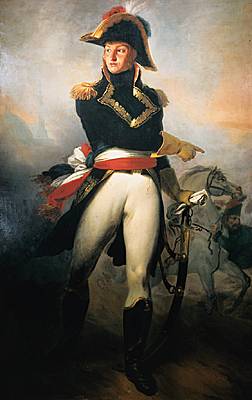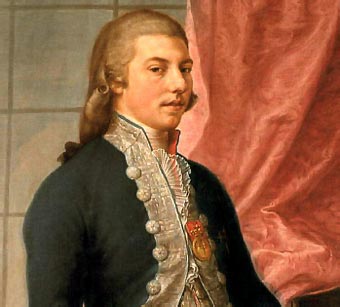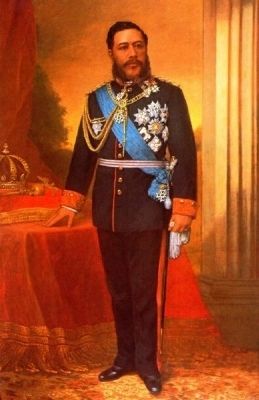Before I go out of town for the weekend, here is a brief update on Latin America during the 1940s, 1950s and early 1960s. Enjoy!

Latin America
Touched by a harsh theatre of war that had torn apart a continent, Latin America entered the era of peace with a mixed record depending on the country. Brazil, the largest and most populous of the Latin American monarchies, had remained neutral as its neighbors fought each other. Long allied to Great Britain, Brazilian leaders had looked precariously at the geopolitical situation in the late 1930s and early 1940s and decided the best course of action would be a firm neutrality. Even as the Andes erupted into violence, the Braganza rulers in Rio de Janeiro stayed neutral. Emperor Juan Francisco I led the country into the 1950s with a moderate hand, encouraging business for the betterment of his subjects. Despite the masses of poor people, the monarchy enjoyed widespread support from most sections of the population, particularly from the powerful elite. The country’s leftist elements, which had flared up most notably in the Brazilian Revolution of 1906, continued to exist as a thorn in the side of the imperial government. Throughout the 1940s and 1950s, a small but violent armed organization, the Equalitarian Front, launched raids on remote military outposts, stirring up dissent across the poorer neighborhoods in larger cities and among sympathetic university campuses. The government’s attempt to crack down on the Equalitarian Front was relatively successful, as the movement was never able to rise above anything beyond a nuisance. Juan Francisco I died in 1974. His nephew, an extremely liberal young man and follower of the ultra-peace movement, became the Emperor of Brazil, taking the name Juan Pablo I.
Another stable Latin American monarchy prospered during the mid twentieth century but unfortunately faced its fair share of problems. In Mexico, Emperor Hector I died in 1936 after forty years on the throne at the age of 77. His son had passed away and his daughter was Empress of Argentina and ineligible for the Mexican throne, despite brief discussion of a personal union between the two faraway and varied nations. Rather, the throne passed to Hector’s nephew, Maximilian, who for several years kept his uncle’s modernizing and industrializing policies, bringing Mexico to a prosperous era. Although not ultraconservative, his system of patronage, cronyism and corruption gave way to a brief civil war.
Emperor Hector I of Mexico during the early years of his reign.
(OTL: King David Kalakaua of Hawaii)
In 1945 the Royal State of Yucatan declared its independence under its governor, the Duke of Merida, who had promised the state’s inhabitants widespread land reforms. The Mexican military, aided by a Confederate naval presence off the coast of the peninsula, subjugated the Duke’s ill-trained militia in a series of battles, including the largest pitched battle, which was fought under the shadow of Mayan ruins near Izamal. Just a year into the war, the Duke surrendered the city of Merida to imperial forces and, in an act of clemency, the emperor pardoned the rebellious duke, except for the loss of noble title. Organized violence among the peasantry continued for another year, although sporadic violence continued into the twenty-first centuries in the deep jungles of the peninsula. The brief Mexican Civil War (also called the Yucatan Peninsula) had deep repercussions for Mexico as a whole. Maximilian introduced broad-based land reform and democratic reform. Among other actions, he replaced the states’ governors with elected figures rather than nobles.
In 1948, Maximilian abdicated from his imperial throne for unclear reasons. Perhaps he disagreed with his democratic reforms or maybe he desired a simple life. He enjoyed a peaceful retirement until his death in 1967. The throne then passed through a succession of rulers. Emperor Napoleon, Maximilian’s sickly younger brother, held the Mexican throne until 1951 when he passed away after three undistinguished years. Then, the Mexican people welcomed their first Empress, Sofia I, the younger sister of Maximilian and Napoleon and youngest niece of Hector. A woman with keen fashion sense, she brought an unprecedented glamour to Mexico City, overseeing numerous public projects and modernizing efforts throughout the country. Her policies gained her strong favor from people across the country. In 1963, the empress died in a car accident in the capital, on an avenue that her administration had sponsored and built. The throne then passed to Sofia’s only child who became Sofia II. At the time, the young empress was only twenty years old and Latin America witnessed its first female to female dynastic succession. The masses instantly warmed to the beautiful young monarch, becoming the face of a new, young and optimistic generation. (photo: Ieda Maria Vargas)
Empress Sofia II of Mexico
(OTL: Miss Universe 1963, Ieda Maria Vargas, a Brazilian...beauty pageants are a treasure trove of women in crowns, useful for alternate histories needing photographs of a young woman in a crown...)
The Republic of Central America remained a smaller economy compared to its neighbors to the north and south. While it generated income from the Trans-Canal that connected the Atlantic and Pacific Oceans, the joint venture with the American and Confederate governments meant that the revenues remained more limited. A new trade agreement passed among the three governments in 1948 gave more control and more of the duties associated with the canal to Central America, a popular move for the developing nation. After the successful president Pedro de Villanueva died in 1910, a power vacuum existed into the 1950s. Politically, the country was a weak democracy, shifting between occasional military and civilian rule. While the American and Confederate governments were keenly interested in the domestic politics of Central America, the various administrations and juntas never threatened the North American republics’ interests in the area. Administrations in Washington and Richmond were glad to turn a blind eye toward moderate civil rights violations, particularly during the military regime of General Manuel Torres between 1934 and 1951. After the strong hand ruler’s death in 1951, the military established a new civilian government and a new robust constitution, ostensibly to usher in democracy. For the millions of people living in Central America, however, the change of governments in San Jose did not impact their largely agricultural way of life, which focused on rice, corn, bananas, and coffee, among other products.
To the south, the republics of Peru and Quito were embarking on a democratizing and rebuilding mission. The Zavtraist parties had been outlawed soon after the war and new leaders took on the challenge of reconstructing and remaking the nations. American (and not so much Confederate) and Brazilian investors poured money into reconstruction projects, including infrastructure improvements and innovations such as hydroelectric dams, irrigations projects and a modern road system to make transportation in the high Andean ranges easier. In 1944, the last of the foreign occupiers left Quito and Peru, leaving the nations to their own devices. In Peru, the dominant party during the rest of the 1940s and 1950s was the liberal People’s Party (Partido de la gente) which produced three consecutive presidents until 1960. Regime fatigue gave way to the rise of the center-right Liberty and Catholic Party, which enjoyed electoral victories for most of the 1960s and 1970s. Beginning in the mid 1970s, the two-party dominance gave way to a multi-party system. In any event, the days of Benito Posada’s Incan dreams were over and the country moved toward the twenty-first century as a stable democracy. In Quito, a number of political parties sprouted up in the wake of the Herrera regime’s collapse during the war. In 1942, the people sent Luis Carrasco of the Progress Party to the presidency and repeatedly re-elected him until 1966. The Progress Party, a socially liberal party that stressed internal improvements, was wildly popular among the majority of Quitans after the failed rightwing rule, and the country became a de facto single party state until the late 1960s, unlike Peru.
Gran Colombia, the conservative ally of the United States and especially the Confederate States, entered the era of peace flush with victory but saddled with debt. Unlike Peru and Quito, which attracted many foreign investors with dirt cheap land and property and a population desperate enough to work for low wages, the static political situation in Gran Colombia attracted fewer foreign funds. While the country had industrialized throughout the nineteenth and twentieth centuries, it was riddled with corruption. The wealthy elite controlled most industries and most posts in the government. The nation was ripe for a populist movement. In the 1949 elections, the Popular Movement for Equality made impressive gains and forced the incumbent president Jose Ortega-Raiz into a run-off. For the authoritarian-minded conservative who had led the country to victory against Quito in 1940, the run-off was an insulting surprise. The ensuing election between Ortega-Raiz and Popular Movement candidate Ernesto Chavez resulted in a clearly fixed election, as the incumbent pulled more than four votes out of five. Riots erupted across the country and marches of protest became the norm for weeks into 1950. Dozens of people were killed in the clashes between the protestors, who were geographically centered around the countryside, and government soldiers. In March 1950, under American and Confederate pressure, Ortega-Raiz agreed to a clean election. He lost to Chavez by a wide margin. Under Chavez and various successors’ Popular Movement governments, which was regularly extended by honest elections until 1978, the middle class steadily grew and millions of rural and urban poor rose out of poverty. The party stabilized the country’s debts by taxing the wealthy elite class that had dominated the country for decades. Angered and distraught at their country’s direction, this small class unsuccessfully coalesced into the main opposition party, the Patriotic Front.
In the southern half of South America, Argentina and Paraguay prospered under stable governments that stressed freedom and inclusion. The Empress of Argentina Carlota died in 1958, shortly after the conclusion of her Golden Jubilee in honor of a half century on the throne. Her reign saw tremendous growth in the country’s wealth and international status. Under her son Carlos’ administration, the political atmosphere loosened and regular competitive elections – which had occurred infrequently under Carlota – became a fixture of the new emperor’s reign. He preferred to hand the reigns of government to his prime ministers, although the country’s constitution allowed for him a free hand to meddle in politics. Emperor Carlos I was a rarity in a world full of monarchs in that he was capable and intelligent yet willing to cede de facto power to democratically elected civilian officials.




